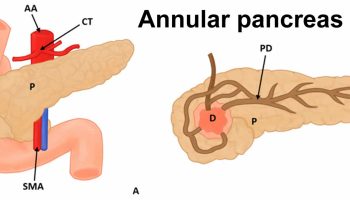Contents
What is a COX-2 inhibitor
COX-2 inhibitor is short for cyclooxygenase-2 selective inhibitor, is a non-steroidal anti-inflammatory drug (NSAID) that is the competitive inhibitor of cyclooxygenase-2 (COX-2), the enzyme which mediates the bioconversion of arachidonic acid to inflammatory prostaglandins (PGs). There are two cyclo-oxygenase enzymes: cyclooxygenase-1 (COX-1) regulates physiological function in the gut and kidney, while cyclooxygenase-2 (COX-2) is induced in inflammation and repair. COX-2 inhibitor was introduced to decrease the gastrointestinal morbidity and mortality associated with older non-steroidal anti-inflammatory drugs (NSAIDs) which inhibit both the COX-1 and the COX-2 enzymes. It was believed that COX-2 inhibitors may be less likely to cause the stomach problems associated with the older NSAIDs, but all NSAIDs carry the risk of stomach problems. COX-2 inhibitors use led to the first reported incidence of increased cardiovascular events (myocardial infarction and stroke) in 2004. Rofecoxib (Vioxx ®), one of the most selective COX-2 inhibitors was removed from the market because of mounting evidence for significant cardiovascular toxicity 1. Celecoxib (Celebrex ®) is currently the only FDA approved coxib available in the United States under prescription. Celecoxib (Celebrex ®) has a 10-20 fold selectivity for COX-2 over COX-1. Celecoxib (Celebrex) is used to treat mild to moderate pain and help relieve symptoms of arthritis (e.g., osteoarthritis, rheumatoid arthritis, or juvenile rheumatoid arthritis), such as inflammation, swelling, stiffness, and joint pain. Celecoxib (Celebrex) is most often prescribed for people with rheumatoid arthritis, osteoarthritis, menstrual cramps and injury-related pain. Etoricoxib (Arcoxia ®) is a second coxib with ~106 fold selectivity for COX-2 over COX-1 that is available outside of the United States.
People who take nonsteroidal anti-inflammatory drugs (NSAIDs) (other than aspirin) such as celecoxib (COX-2 inhibitor) may have a higher risk of having a heart attack or a stroke than people who do not take these medications. These events may happen without warning and may cause death. This risk may be higher for people who take NSAIDs for a long time. Do not take an NSAID such as celecoxib if you have recently had a heart attack, unless directed to do so by your doctor. Tell your doctor if you or anyone in your family has or has ever had heart disease, a heart attack, or a stroke, if you smoke, and if you have or have ever had high cholesterol, high blood pressure, or diabetes. Get emergency medical help right away if you experience any of the following symptoms: chest pain, shortness of breath, weakness in one part or side of the body, or slurred speech.
If you will be undergoing a coronary artery bypass graft (CABG; a type of heart surgery), you should not take celecoxib right before or right after the surgery.
NSAIDs such as celecoxib may cause ulcers, bleeding, or holes in the stomach or intestine. These problems may develop at any time during treatment, may happen without warning symptoms, and may cause death. The risk may be higher for people who take NSAIDs for a long time, are older in age, have poor health, or drink large amounts of alcohol while taking celecoxib. Tell your doctor if you drink large amounts of alcohol or if you take any of the following medications: anticoagulants (‘blood thinners’) such as warfarin (Coumadin, Jantoven); aspirin; other NSAIDs such as ibuprofen (Advil, Motrin) or naproxen (Aleve, Naprosyn); oral steroids such as dexamethasone, methylprednisolone (Medrol), and prednisone (Rayos); selective serotonin reuptake inhibitors (SSRIs) such as citalopram (Celexa), fluoxetine (Prozac, Sarafem, Selfemra, in Symbyax), fluvoxamine (Luvox), paroxetine (Brisdelle, Paxil, Pexeva), and sertraline (Zoloft); or serotonin norepinephrine reuptake inhibitors (SNRIs) such as desvenlafaxine (Khedezla, Pristiq), duloxetine (Cymbalta), and venlafaxine (Effexor XR). Also tell your doctor if you have or have ever had ulcers or bleeding in your stomach or intestines or other bleeding disorders. If you experience any of the following symptoms, stop taking celecoxib and call your doctor: stomach pain, heartburn, vomiting a substance that is bloody or looks like coffee grounds, blood in the stool, or black and tarry stools.
Keep all appointments with your doctor and the laboratory. Your doctor will monitor your symptoms carefully and will probably order certain tests to check your body’s response to celecoxib. Be sure to tell your doctor how you are feeling so that your doctor can prescribe the right amount of medication to treat your condition with the lowest risk of serious side effects.
Your doctor or pharmacist will give you the manufacturer’s patient information sheet (Medication Guide) when you begin treatment with celecoxib and each time you refill your prescription. Read the information carefully and ask your doctor or pharmacist if you have any questions. You can also visit the Food and Drug Administration (FDA) website (https://www.fda.gov/Drugs/DrugSafety/ucm085729.htm) or the manufacturer’s website to obtain the Medication Guide.
COX-2 inhibitors list
Celecoxib
Celecoxib is used to relieve pain, tenderness, swelling and stiffness caused by osteoarthritis (arthritis caused by a breakdown of the lining of the joints), rheumatoid arthritis (arthritis caused by swelling of the lining of the joints), and ankylosing spondylitis (arthritis that mainly affects the spine). It is also used to treat juvenile rheumatoid arthritis (a type of arthritis that affects children) in children 2 years of age and older. Celecoxib is also used to treat painful menstrual periods and to relieve other types of short-term pain including pain caused by injuries, surgery and other medical or dental procedures, or medical conditions that last for a limited time. Celecoxib is in a class of NSAIDs called COX-2 inhibitors. It works by stopping the body’s production of a substance that causes pain and inflammation.
Celecoxib is also sometimes used with surgery and other treatments to reduce the number of polyps (abnormal growths) in the colon (large intestine) and rectum in patients with familial adenomatous polyposis (a condition in which hundreds or thousands of polyps form in the colon and cancer may develop). Talk to your doctor about the risks of using this medication for your condition.
How should Celecoxib be used?
Celecoxib comes as a capsule to take by mouth. It is usually taken once or twice a day. If you are taking up to 200 mg of celecoxib at a time, you may take the medication with or without food. If you are taking more than 200 mg of celecoxib at a time, you should take the medication with food. Ask your doctor or pharmacist if you are not sure if you need to take your medication with food. To help you remember to take celecoxib, take it around the same time(s) every day. Follow the directions on your prescription label carefully, and ask your doctor or pharmacist to explain any part you do not understand. Take celecoxib exactly as directed. Do not take more or less of it or take it more often than prescribed by your doctor.
If you cannot swallow the capsules or if you are giving this medication to a child, you may open the capsules and sprinkle the contents over a teaspoon of cold or room temperature applesauce. You may prepare the mixture in advance and store it for up to 6 hours in a refrigerator. When you are ready to take your medication, swallow all of the mixture. Then drink water to wash down the mixture and be sure that you have swallowed all of it.
COX 2 inhibitors special precautions
Before taking celecoxib:
- tell your doctor and pharmacist if you are allergic to celecoxib, aspirin or other NSAIDs such as ibuprofen (Advil, Motrin) and naproxen (Aleve, Naprosyn), sulfa medications, any other medications, or any of the inactive ingredients in celecoxib capsules. Ask your pharmacist for a list of the inactive ingredients.
- tell your doctor and pharmacist what prescription and nonprescription medications, vitamins, nutritional supplements, and herbal products you are taking or plan to take. Be sure to mention the medications listed in the IMPORTANT WARNING section and any of the following: angiotensin-converting enzyme (ACE) inhibitors such as benazepril (Lotensin, in Lotrel), captopril, enalapril (Vasotec, in Vaseretic), fosinopril, lisinopril (in Zestoretic), moexipril (Univasc), perindopril (Aceon, in Prestalia), quinapril (Accupril, in Quinaretic), ramipril (Altace), and trandolapril (Mavik, in Tarka); angiotensin receptor blockers such as candesartan (Atacand, in Atacand HCT), eprosartan (Teveten), irbesartan (Avapro, in Avalide), losartan (Cozaar, in Hyzaar), olmesartan (Benicar, in Azor, in Benicar HCT, in Tribenzor), telmisartan (Micardis, in Micardis HCT, in Twynsta), and valsartan (in Exforge HCT); beta blockers such as atenolol (Tenormin, in Tenoretic), labetalol (Trandate), metoprolol (Lopressor, Toprol XL, in Dutoprol), nadolol (Corgard, in Corzide), and propranolol (Hemangeol, Inderal, Innopran); diuretics (‘water pills’); fluconazole (Diflucan); and lithium (Lithobid). Your doctor may need to change the doses of your medications or monitor you carefully for side effects.
- tell your doctor if you have or have ever had any of the conditions mentioned in the IMPORTANT WARNING section or asthma, especially if you also have frequent stuffed or runny nose or nasal polyps (swelling of the lining of the nose); swelling of the hands, arms, feet, ankles, or lower legs; heart failure; or liver or kidney disease.
- tell your doctor if you are pregnant, especially if you are in the last few months of your pregnancy, you plan to become pregnant, or you are breast-feeding. If you become pregnant while taking celecoxib, call your doctor.
- if you are having surgery, including dental surgery, tell the doctor or dentist that you are taking celecoxib.
The American Heart Association currently recommends that when NSAID therapy is needed:
- NSAIDs should be used at their lowest effective dose
- NSAIDs should be avoided in patients with cardiovascular risk factors including:
- hypertension
- hypercholesterolemia
- angina
- edema
- recent cardiac bypass surgery
- a history of myocardial infarction or other cardiovascular events
Pediatric
Appropriate studies performed to date have not demonstrated pediatric-specific problems that would limit the usefulness of celecoxib in children 2 years of age and older. However, safety and efficacy have not been established in children younger than 2 years of age.
Geriatric
Appropriate studies performed to date have not demonstrated geriatric-specific problems that would limit the usefulness of celecoxib in the elderly. However, elderly patients are more likely to have age-related kidney or stomach problems, which may require caution.
Pregnancy
| Pregnancy Category | Explanation | |
|---|---|---|
| 1st Trimester | C | Animal studies have shown an adverse effect and there are no adequate studies in pregnant women OR no animal studies have been conducted and there are no adequate studies in pregnant women. |
| 2nd Trimester | C | Animal studies have shown an adverse effect and there are no adequate studies in pregnant women OR no animal studies have been conducted and there are no adequate studies in pregnant women. |
| 3rd Trimester | D | Studies in pregnant women have demonstrated a risk to the fetus. However, the benefits of therapy in a life threatening situation or a serious disease, may outweigh the potential risk. |
Breastfeeding
There are no adequate studies in women for determining infant risk when using this medication during breastfeeding. Weigh the potential benefits against the potential risks before taking this medication while breastfeeding.
Drug Interactions
Although certain medicines should not be used together at all, in other cases two different medicines may be used together even if an interaction might occur. In these cases, your doctor may want to change the dose, or other precautions may be necessary. When you are taking this medicine, it is especially important that your healthcare professional know if you are taking any of the medicines listed below. The following interactions have been selected on the basis of their potential significance and are not necessarily all-inclusive.
Using this medicine with any of the following medicines is not recommended. Your doctor may decide not to treat you with this medication or change some of the other medicines you take.
- Ketorolac
Using this medicine with any of the following medicines is usually not recommended, but may be required in some cases. If both medicines are prescribed together, your doctor may change the dose or how often you use one or both of the medicines.
- Abciximab
- Aceclofenac
- Acemetacin
- Acenocoumarol
- Amiloride
- Amineptine
- Amitriptyline
- Amitriptylinoxide
- Amoxapine
- Amtolmetin Guacil
- Anagrelide
- Apixaban
- Ardeparin
- Argatroban
- Aspirin
- Balsalazide
- Bemiparin
- Bendroflumethiazide
- Benzthiazide
- Betamethasone
- Betrixaban
- Bismuth Subsalicylate
- Bivalirudin
- Bromfenac
- Budesonide
- Bufexamac
- Bumetanide
- Cangrelor
- Celecoxib
- Ceritinib
- Certoparin
- Chlorothiazide
- Chlorthalidone
- Choline Magnesium Trisalicylate
- Choline Salicylate
- Cilostazol
- Citalopram
- Clomipramine
- Clonixin
- Clopamide
- Clopidogrel
- Cortisone
- Cyclopenthiazide
- Cyclosporine
- Dabigatran Etexilate
- Dalteparin
- Danaparoid
- Deflazacort
- Desipramine
- Desirudin
- Desmopressin
- Desvenlafaxine
- Dexamethasone
- Dexibuprofen
- Dexketoprofen
- Diazoxide
- Dibenzepin
- Diclofenac
- Diflunisal
- Digoxin
- Dipyridamole
- Dipyrone
- Dothiepin
- Doxepin
- Droxicam
- Duloxetine
- Edoxaban
- Enoxaparin
- Eplerenone
- Epoprostenol
- Eptifibatide
- Escitalopram
- Ethacrynic Acid
- Etodolac
- Etofenamate
- Etoricoxib
- Felbinac
- Fenoprofen
- Fepradinol
- Feprazone
- Feverfew
- Floctafenine
- Flufenamic Acid
- Fluocortolone
- Fluoxetine
- Flurbiprofen
- Fluvoxamine
- Fondaparinux
- Furosemide
- Ginkgo
- Gossypol
- Heparin
- Hydrochlorothiazide
- Hydrocortisone
- Hydroflumethiazide
- Ibuprofen
- Iloprost
- Imipramine
- Indapamide
- Indomethacin
- Inotersen
- Ivosidenib
- Ketoprofen
- Lepirudin
- Levomilnacipran
- Lithium
- Lofepramine
- Lornoxicam
- Loxoprofen
- Lumiracoxib
- Magnesium Salicylate
- Meadowsweet
- Meclofenamate
- Mefenamic Acid
- Melitracen
- Meloxicam
- Mesalamine
- Methotrexate
- Methyclothiazide
- Methylprednisolone
- Metolazone
- Milnacipran
- Morniflumate
- Nabumetone
- Nadroparin
- Naproxen
- Nefazodone
- Nepafenac
- Niflumic Acid
- Nimesulide
- Nimesulide Beta Cyclodextrin
- Nortriptyline
- Olsalazine
- Opipramol
- Oxaprozin
- Oxyphenbutazone
- Paramethasone
- Parecoxib
- Parnaparin
- Paroxetine
- Pemetrexed
- Pentosan Polysulfate Sodium
- Pentoxifylline
- Phenindione
- Phenprocoumon
- Phenylbutazone
- Phenyl Salicylate
- Piketoprofen
- Piroxicam
- Polythiazide
- Pralatrexate
- Prasugrel
- Prednisolone
- Prednisone
- Proglumetacin
- Propyphenazone
- Proquazone
- Protein C
- Protriptyline
- Reboxetine
- Reviparin
- Rivaroxaban
- Rofecoxib
- Salicylamide
- Salicylic Acid
- Salsalate
- Sertraline
- Sibutramine
- Sodium Salicylate
- Spironolactone
- Sulfasalazine
- Sulindac
- Tacrolimus
- Tenofovir Disoproxil Fumarate
- Tenoxicam
- Tianeptine
- Tiaprofenic Acid
- Ticagrelor
- Ticlopidine
- Tinzaparin
- Tirofiban
- Tolfenamic Acid
- Tolmetin
- Torsemide
- Treprostinil
- Triamterene
- Trichlormethiazide
- Trimipramine
- Trolamine Salicylate
- Valdecoxib
- Venlafaxine
- Vilazodone
- Vorapaxar
- Vortioxetine
- Warfarin
- Xipamide
Using this medicine with any of the following medicines may cause an increased risk of certain side effects, but using both drugs may be the best treatment for you. If both medicines are prescribed together, your doctor may change the dose or how often you use one or both of the medicines.
- Acebutolol
- Alacepril
- Atenolol
- Azilsartan
- Azilsartan Medoxomil
- Benazepril
- Betaxolol
- Bisoprolol
- Candesartan Cilexetil
- Captopril
- Carteolol
- Carvedilol
- Celiprolol
- Enalapril
- Enalaprilat
- Eprosartan
- Esmolol
- Fluconazole
- Fosinopril
- Irbesartan
- Labetalol
- Levobunolol
- Lisinopril
- Losartan
- Metipranolol
- Metoprolol
- Moexipril
- Nadolol
- Nebivolol
- Olmesartan Medoxomil
- Oxprenolol
- Penbutolol
- Perindopril Erbumine
- Pindolol
- Practolol
- Propranolol
- Quinapril
- Ramipril
- Sotalol
- Spirapril
- Telmisartan
- Timolol
- Trandolapril
- Valsartan
Other Interactions
Certain medicines should not be used at or around the time of eating food or eating certain types of food since interactions may occur. Using alcohol or tobacco with certain medicines may also cause interactions to occur. Discuss with your healthcare professional the use of your medicine with food, alcohol, or tobacco.
Other Medical Problems
The presence of other medical problems may affect the use of this medicine. Make sure you tell your doctor if you have any other medical problems, especially:
- Anemia or
- Congestive heart failure or
- Edema (fluid retention or body swelling) or
- Heart attack, history of or
- Heart disease or
- Hypertension (high blood pressure) or
- Kidney disease, mild to moderate or
- Stomach ulcers or bleeding, history of or
- Stroke, history of—Use with caution. May make these conditions worse.
- Aspirin-sensitive asthma, history of or
- Aspirin sensitivity, history of or
- Kidney impairment, severe or
- Liver impairment, severe or
- Sulfa or sulfonamide allergy (e.g., sulfamethoxazole, Bactrim®, or Septra®)—Should not be used in patients with these conditions.
- Heart surgery (e.g., coronary artery bypass graft [CABG] surgery)—This medicine should not be used to relieve pain right before or after the surgery.
- Certain genetic conditions (poor CYP2C9 (a liver enzyme) metabolizers) or
- Liver disease, mild or moderate—Use with caution. You may need a reduced dose of this medicine.
Celecoxib dosage
The dose of this medicine will be different for different patients. Follow your doctor’s orders or the directions on the label. The following information includes only the average doses of this medicine. If your dose is different, do not change it unless your doctor tells you to do so.
The amount of medicine that you take depends on the strength of the medicine. Also, the number of doses you take each day, the time allowed between doses, and the length of time you take the medicine depend on the medical problem for which you are using the medicine.
For oral dosage form (capsules):
- For acute pain or pain during menstruation:
- Adults—At first, 400 milligrams (mg). A second dose of 200 mg can be taken if needed on the first day. Then, 200 mg two times a day as needed.
- Children—Use and dose must be determined by your doctor.
- For ankylosing spondylitis or osteoarthritis:
- Adults—200 milligrams (mg) once a day or 100 mg two times a day. Your doctor may increase your dose if needed.
- Children—Use and dose must be determined by your doctor.
- For rheumatoid arthritis or juvenile rheumatoid arthritis:
- Adults—100 to 200 milligrams (mg) two times a day.
- Children 2 years of age and older and weighing more than 25 kilograms (kg)—Dose is based on body weight and must be determined by your doctor. The dose is usually 100 milligrams (mg) two times a day.
- Children 2 years of age and older and weighing less than 25 kilograms (kg)—Dose is based on body weight and must be determined by your doctor. The dose is usually 50 milligrams (mg) two times a day.
- Children younger than 2 years of age—Use and dose must be determined by your doctor.
Missed Dose
If you miss a dose of this medicine, take it as soon as possible. However, if it is almost time for your next dose, skip the missed dose and go back to your regular dosing schedule. Do not double doses.
COX 2 inhibitors side effects
Celecoxib may cause side effects. Tell your doctor if any of these symptoms are severe or do not go away:
- diarrhea
- gas or bloating
- sore throat
- cold symptoms
Some side effects can be serious. If you experience any of the following symptoms or those mentioned in the IMPORTANT WARNING section, call your doctor immediately. Do not take any more celecoxib until you speak to your doctor.
- unexplained weight gain
- shortness of breath or difficulty breathing
- swelling of the abdomen, feet, ankles, or lower legs
- nausea
- excessive tiredness
- unusual bleeding or bruising
- itching
- lack of energy
- loss of appetite
- pain in the upper right part of the stomach
- yellowing of the skin or eyes
- flu-like symptoms
- blisters
- fever
- rash
- hives
- swelling of the face, throat, tongue, lips, eyes, or hands
- hoarseness
- difficulty swallowing or breathing
- pale skin
- fast heartbeat
- cloudy, discolored, or bloody urine
- back pain
- difficult or painful urination
- frequent urination, especially at night
Celecoxib may cause other side effects. Call your doctor if you have any unusual problems while you are taking this medication.
COX 2 inhibitors overdose
In case of COX 2 inhibitors overdose, call the poison control helpline at 1-800-222-1222. Information is also available online at https://www.poisonhelp.org/help. If the victim has collapsed, had a seizure, has trouble breathing, or can’t be awakened, immediately call your local emergency services number.
Symptoms of COX 2 inhibitors overdose may include:
- lack of energy
- drowsiness
- nausea
- vomiting
- stomach pain
- vomiting material that is bloody or looks like coffee grounds
- bloody or black, tarry stools
- loss of consciousness
- hives
- rash
- swelling of the eyes, face, tongue, lips, throat, arms, hands, feet, ankles, or lower legs
- difficulty breathing or swallowing
- Drazen JM (2005): Cox-2 inhibitors – a lesson in unexpected problems. N Engl J Med 352:1131-1132.[↩]





